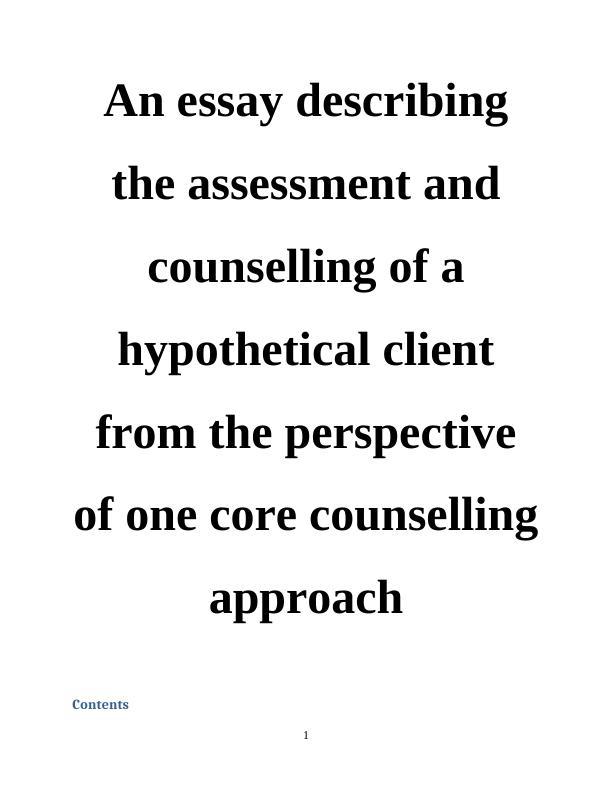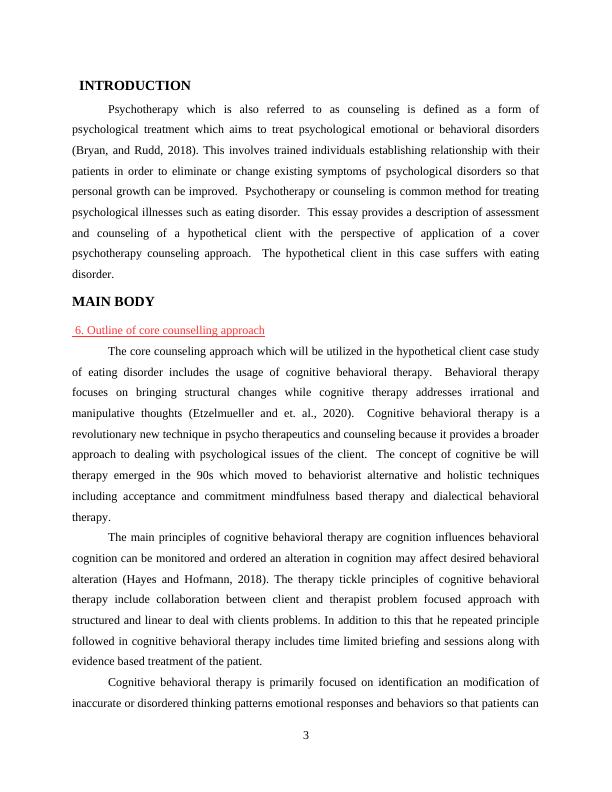Assessment and Counseling of a Hypothetical Client with Eating Disorder using Cognitive Behavioral Therapy
Added on 2023-06-12
8 Pages1953 Words482 Views
End of preview
Want to access all the pages? Upload your documents or become a member.
Cognitive Behavioral Therapy vs. Person Centred Therapy
|13
|3761
|346
Theories of Counseling: Cognitive Behavioral Therapy and Gestalt Therapy
|10
|3133
|485
Assignment on Therapeutic Interventions
|6
|1463
|22
Integrative Counselling Theory | Assignment
|9
|3345
|11
Clinical Psychology - Cognitive Therapy
|12
|2865
|33
Trauma Informed Strategies Assignment 2022
|4
|778
|24



